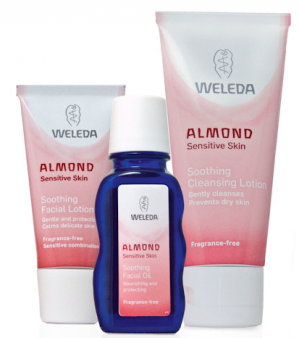Help with supersensitive skin
A. According to Dr. Rania Malik, who specialises in treating problem skins non-invasively, ‘It is possible that the aqueous cream has damaged her skin’s moisture barrier, as you suspect. This is particularly the case if she suffered from eczema in the past. Although aqueous cream used to be prescribed as a moisturiser, recent studies have shown a link with skin irritation. So it is no longer recommended as a moisturiser for people suffering from eczema.’
[However, NHS guidelines, which are really now out of date with research, still permit it to be prescribed as a ‘wash’ product.]
Dr. Malik believes the underlying problem is an ingredient called sodium lauryl sulphate (SLS), a harsh detergent and foaming agent that is a common ingredient in skincare. Aqueous cream contains SLS, as do many other skincare products particularly cleansers and shampoos (also toothpaste).
Says Dr. Malik: ‘I do not think your daughter has permanently damaged her skin barrier but she does appear to have a form of contact dermatitis in response to the SLS. The fact that it is found in some many different products means she is getting constant irritation.’
 ‘The solution to this problem,’ Dr. Malik advises ‘is to avoid any skin and hair products containing sulphates [SLS and its near relation SLES, sodium laureth sulphate, are the principal problems]. Weleda Almond range contains no sulphates and is soothing and I recommend a range called Cosmedix, a range that is sulphate-free and effective. I think your daughter’s skin will settle relatively quickly once you make this change.’
‘The solution to this problem,’ Dr. Malik advises ‘is to avoid any skin and hair products containing sulphates [SLS and its near relation SLES, sodium laureth sulphate, are the principal problems]. Weleda Almond range contains no sulphates and is soothing and I recommend a range called Cosmedix, a range that is sulphate-free and effective. I think your daughter’s skin will settle relatively quickly once you make this change.’
• Weleda Almond range/£1.95-£35 at www.weleda.co.uk - buy here
• Cosmedix from £7.14 at www.amazon.co.uk - buy here
